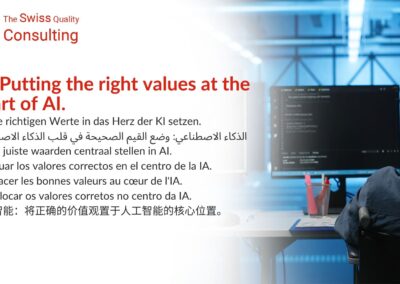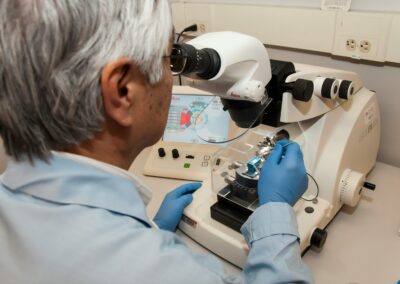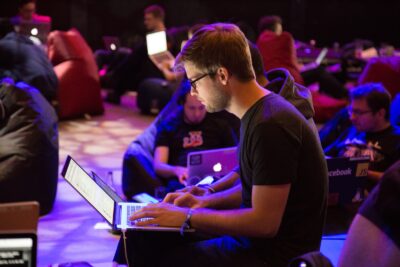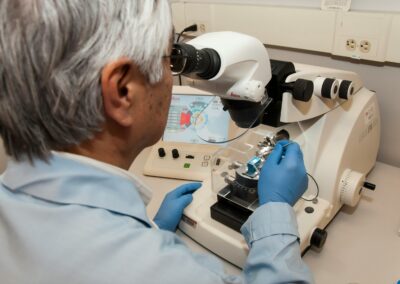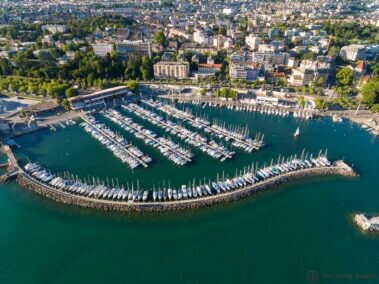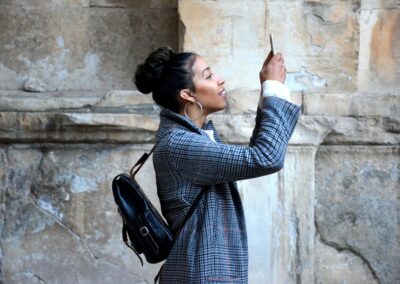The Influence of Globalization and Digital Media
The Intersection of Technology and Culture in Saudi Arabia and the UAE
In the rapidly evolving landscape of Saudi Arabia and the UAE, technology plays a pivotal role in shaping cultural norms and values. The integration of modern technologies such as artificial intelligence, blockchain, and the metaverse has significantly impacted how cultural identities are formed and maintained. These advancements are not only transforming business practices but are also influencing societal behaviors and values, driving globalization and fostering a more interconnected world.
The advent of digital media has been particularly influential. In Riyadh and Dubai, social media platforms, online news outlets, and digital entertainment have become integral parts of daily life. These platforms facilitate the exchange of ideas and cultural expressions, allowing individuals to connect with global trends while maintaining their unique cultural identities. For instance, digital media campaigns in Saudi Arabia promoting traditional arts and heritage have successfully reached international audiences, showcasing the kingdom’s rich cultural history. Similarly, in the UAE, technology-driven initiatives have highlighted the country’s rapid modernization while preserving its cultural roots.
Moreover, the use of artificial intelligence in cultural preservation and promotion is noteworthy. AI technologies are being employed to digitize historical artifacts, create virtual museums, and enhance cultural tourism experiences. In Saudi Arabia, AI-driven projects have helped document and preserve ancient manuscripts, making them accessible to a global audience. The UAE’s use of AI in cultural initiatives includes virtual reality tours of historical sites, providing immersive experiences that educate and engage both residents and visitors. These technological applications demonstrate the profound impact of AI on cultural preservation and dissemination, bridging the gap between tradition and modernity.
Globalization and Its Cultural Impacts
Globalization, fueled by technological advancements, has reshaped cultural norms and values across the world. In the context of Saudi Arabia and the UAE, globalization has introduced new perspectives and practices, contributing to the dynamic evolution of cultural identities. Digital media, in particular, serves as a powerful tool for cultural exchange, enabling the seamless flow of information and ideas across borders.
One significant aspect of this cultural transformation is the influence of global business practices. As Saudi Arabia and the UAE continue to position themselves as key players in the global economy, the adoption of international business norms has become increasingly prevalent. This includes the integration of cutting-edge technologies such as blockchain for secure transactions and AI for efficient business operations. These technologies not only enhance business success but also shape organizational cultures by promoting values such as transparency, efficiency, and innovation. For instance, blockchain technology is being utilized in Dubai’s government services to enhance trust and accountability, reflecting a broader cultural shift towards transparency and digital governance.
Furthermore, the metaverse represents a new frontier in cultural globalization. This immersive digital environment allows users to interact in virtual spaces, transcending geographical boundaries and creating new cultural experiences. In the UAE, initiatives to develop a metaverse economy aim to position the country as a global hub for digital innovation. This includes virtual events, digital art exhibitions, and online social gatherings that foster cultural exchange and collaboration. Similarly, Saudi Arabia’s investments in the metaverse are focused on enhancing cultural tourism and education, offering virtual tours of historical sites and interactive learning experiences.
However, the globalization of culture through technology also presents challenges. The rapid spread of global cultural norms can sometimes overshadow local traditions and values, leading to concerns about cultural homogenization. Business leaders and policymakers in Saudi Arabia and the UAE must navigate these complexities by promoting a balanced approach that embraces technological innovation while preserving cultural heritage. This involves fostering a regulatory environment that supports ethical technology use, encourages cultural diversity, and promotes inclusive growth.
The Role of Leadership in Navigating Cultural Change
Leadership is crucial in guiding the ethical integration of technology into cultural practices. Business executives, mid-level managers, and entrepreneurs in Saudi Arabia and the UAE have a responsibility to ensure that technological advancements align with societal values and contribute to the well-being of their communities. This involves adopting a holistic approach that considers the cultural, social, and economic impacts of technology.
One key strategy is to prioritize cultural sensitivity and inclusivity in technology-driven initiatives. For instance, when developing AI applications or digital media content, it is essential to consider diverse cultural perspectives and avoid reinforcing stereotypes or biases. This can be achieved through inclusive design practices, stakeholder engagement, and continuous feedback loops. In Riyadh and Dubai, companies are increasingly incorporating cultural diversity into their innovation strategies, recognizing that a multicultural approach enhances creativity and relevance in the global market.
Moreover, leadership in technology should emphasize ethical considerations and responsible innovation. This includes addressing issues such as data privacy, digital rights, and the ethical use of AI. By implementing robust governance frameworks and adhering to international standards, business leaders can build trust and credibility, ensuring that technological advancements benefit society as a whole. In the UAE, regulatory bodies are actively developing policies to safeguard digital rights and promote ethical AI use, setting a benchmark for responsible technology integration.
Additionally, fostering a culture of continuous learning and adaptation is essential. As technology evolves, so do the cultural norms and values it influences. Business leaders must stay informed about emerging trends and technologies, leveraging them to drive positive cultural change. This involves investing in education and training programs that equip employees with the skills and knowledge needed to navigate the digital landscape effectively. In Saudi Arabia, initiatives such as the Saudi Vision 2030 emphasize the importance of digital literacy and innovation, preparing the workforce for the challenges and opportunities of the future.
Conclusion: Embracing Technology for Cultural Enrichment
Technology’s role in shaping cultural norms and values is profound and multifaceted. In Saudi Arabia and the UAE, the integration of modern technologies such as AI, blockchain, and the metaverse is driving cultural transformation, fostering globalization, and promoting business success. By embracing these advancements while prioritizing ethical considerations and cultural sensitivity, business leaders can ensure that technology serves as a force for positive change.
As globalization continues to blur cultural boundaries, the commitment to preserving local traditions and values remains paramount. Through responsible leadership, inclusive innovation, and continuous learning, the business communities in Riyadh, Dubai, and beyond can navigate the complexities of cultural change, leveraging technology to enrich and enhance their cultural landscapes.
—
#TechnologyInCulture #Globalization #DigitalMedia #CulturalNorms #AIinSaudiArabia #TechnologyInUAE #RiyadhTech #DubaiDigitalMedia #LeadershipInTech #BlockchainCulture #MetaverseInfluence



